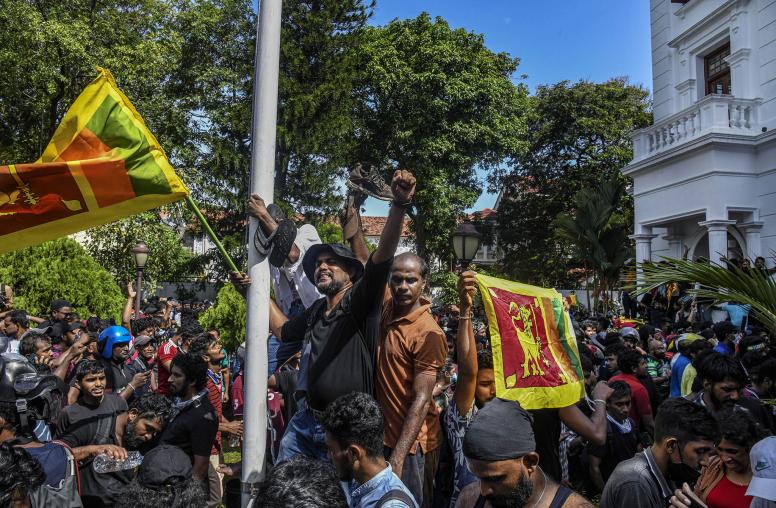African Growth and Opportunity Act: Private Sector Forum
Setting the Stage for the Next Phase in the U.S.-Africa Trade and Investment Partnership
View the complete list of speakers and the agendaEnhancing U.S.-Africa trade and investment partnerships is important to U.S. and African economic development goals. And with the African Growth and Opportunity Act (AGOA) set to expire in 2025, it’s crucial to consider the role AGOA has played — and could play going forward, if reauthorized — in supporting those goals. But changing trade and investment landscapes could also signal the need to think “beyond AGOA” to build stronger partnerships in areas like critical minerals, trade capacity, and internet and communications technology — sectors that can benefit from stronger policy engagement as well as financial tools.
Even now, African countries are actively reshaping their approach to trade in response to major developments such as the advancement of the African Continental Free Trade Area Agreement (AfCFTA), the introduction of African Union programs to support manufacturing sectors, and global shifts to improve supply chain security. Amid this changing environment, the 2024 AGOA Private Sector Forum offers an opportunity to explore what the next phase in the U.S.-Africa trade and investment partnership might look like.
On July 24, USIP, the Corporate Council on Africa, and the U.S. Department of Commerce hosted the 2024 AGOA Private Sector Forum. The Forum focused on opportunities for enhancing U.S.-Africa trade and investment partnerships during a pivotal time in U.S.-Africa trade policy development, including as Congress considers AGOA reauthorization. The 2024 AGOA Private Sector Forum also provided critical input for official ministerial meetings taking place as part of the broader AGOA proceedings in Washington, D.C., scheduled for July 25-26.
Agenda
8:45am – 9:15 am EDT | Welcome
- Ambassador George Moose, welcoming remarks
Acting President and CEO, U.S. Institute of Peace - Florie Liser, introductory remarks
President and CEO, Corporate Council on Africa - Antony J. Blinken, keynote remarks (Read the transcript)
U.S. Secretary of State - Ambassador Katherine Tai (Read the transcript)
U.S. Trade Representative - H.E. Albert Muchanga
Commissioner for Economic Development, Tourism, Trade and Mining, African Union
9:15am – 9:50am EDT | AGOA Renewal: Setting the Stage for the Next Phase of U.S.-African Economic Partnership
- Hon. Parks Tau
Minister of Trade, Industry and Competition, Republic of South Africa - Anne Aliker
Group Head Client Coverage, Corporate and Investment Banking, Standard Bank - Bobby Thomson
SVP and Head of Global Government Engagement, Visa - Farouk Gumel
Vice Chair, Africa, TGI Group - Henock Teferra Shawl
Managing Director, Africa, Boeing - Catherine Robinson
Senior Director, Global Trade Policy and International Government Affairs, Pfizer - Everett Eissenstat, moderator
Partner Public Policy Group, Squire Patton Boggs
10:00am – 10:50am EDT | Scaling to Success: Building Stronger Partnerships in Textiles, Automotives and Agribusiness
- Babajide Sodipo
Senior Manager, AU/AfCFTA Relations and Trade Policy, Afreximbank - Rahul Mittal
Director of Intra Africa Sales, ARISE - Eckart Naumann
Senior Associate, Tralac - Olawunmi Osholane
Deputy Managing Director, Global Shea Alliance - Jim Krigbaum
CEO 20/20 DC - Erica Joubert
Head, Export Promotion, Wesgro - Vanessa Adams, moderator
Founder and CEO, Level4International
10:50am – 11:20am EDT | The View from Trade Associations and PAC-DBIA
- Paul Ryberg
President, African Coalition for Trade (on behalf of AREA) - Lilowtee Rajmussen-Jooseery
Director, MEXA - Victor Ogalo
Deputy CEO, KEPSA - Rahama Wright
Chief Executive Officer, Yeleen Enterprises PACDBIA - Kate Tulenko
CEO, Corvus Health PACDBIA - Brionne Dawson
Google PACDBIA - Laird Treiber, moderator
Senior Adviser, CCA
11:20am – 11:50am EDT | Beyond AGOA
- Tom Sheehy
Distinguished Fellow, USIP - Dr. Zainab Usman
Director of the Africa Program, Carnegie Endowment for International Peace - Tony Carroll
Vice President, Manchester Trade - Dr. Joseph Sany, moderator
Vice President, Africa Center, USIP
12:05pm – 1:00pm EDT | Recommendations for the Future of U.S.-African Trade and Investment
- Don Graves, keynote remarks
Deputy Secretary, U.S. Department of Commerce - David Olave
Associate and Trade Policy Adviser, Sandler Travis & Rosenberg - David Coffey
CEO, African Association of Automotive Manufacturers (AAAM) - Chris LeGrand
CEO, Broadreach - Drew Quinn
Director of International Trade Engagement, Strategy and Policy, GE Health Care - Melissa Nelson
General Counsel and Corporate Secretary, SanMar Corporation - Witney Schneidman, moderator
President, Schneidman and Associates
1:00pm – 1:30pm | Closing: Fireside Chat
- Jas Bedi
Chair, KEPSA - British Robinson
Coordinator, Prosper Africa - Brahima Coulibaly
Vice President and Director of the Global Economy and Development Program, Brookings Institution - Florie Liser, moderator and closing remarks
President and CEO, CCA



